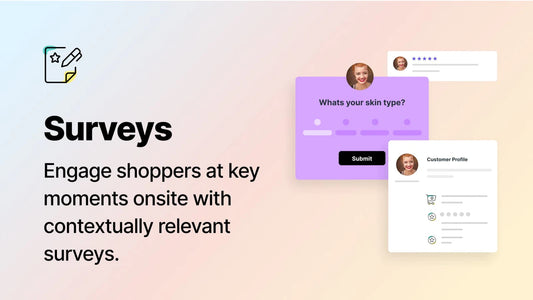Today, the whole world is glued to their smartphones for all their basic and functional needs.
Whether it is for ordering your food, shopping or booking a taxi, users prefer mobile apps to perform these actions and much more. Businesses are heavily reliant on mobile app development to ensure growth and success. However, eCommerce businesses often struggle to identify the best way to build and deploy the online commerce mobile app.
Whether to build a native mobile app or a web app, is the million-dollar question, that we will try to answer in this article.
What are Native Mobile Apps?
Native apps are dedicated mobile apps built for specific devices. They are directly installed on mobile devices or any smart device through an online marketplace like App Store or Google Play Store. Some common examples of native mobile apps are LADIDA (eCommerce mobile app) and Waze (navigation mobile app).
What are Web Apps?
Web apps are internet-powered applications that have dedicated functionalities for specific devices. They are usually accessed using the device’s website browser, such as Chrome or Firefox. They need not be specially installed on the device.
What are Progressive Web Apps?
With a brief understanding of what native mobile apps and web apps are, we shall delve deeper into learning what progressive web apps are. Native mobile apps have higher capabilities and better functionalities, while web apps have greater reach without device dependencies. Progressive Web Apps (PWAs) give you the best of both worlds. They are built and enriched with modern APIs to deliver exceptional functionalities with optimum performance in terms of reliability and installability.
Let us consider the significant differences between platform-specific apps and device-independent apps.
The Difference Between Native Mobile Apps and Web Apps
Listed here are a few factors that can help us differentiate between native mobile apps and web apps.
UI and UX
Generally, we see differences in the user interface of native apps and web apps. Native mobile apps usually have a well-thought-through user interface and user experience that have been built specifically for the device they are meant for. Web apps, on the other hand, may have slight variations in the experience delivered to users as different browsers may render different sites in different ways.
Development Features
In the case of native mobile apps, there is a specific mobile app development process for various mobile app development platforms like Android and iOS. Each platform supports its native programming language like Android supports Java, iOS supports Objective-C and Windows supports Visual C++. However, web apps run on the devices’ web browsers that have their features. Further, web apps are popularly coded using HTML5, JavaScript, and CSS3.
Capabilities and Reach
As mentioned earlier, native mobile apps have enhanced capabilities in terms of easy integration with the devices’ native features, and hardware. However, they are device-dependent and hence, cannot reach a larger set of audience. On the other hand, web apps have limited capabilities, but their reach is much greater as they only need a web browser and are completely device-independent.
Monetisation Methods
Native mobile apps rely on device-specific advertising platforms like AdMob for monetisation. While web apps can make money through in-site ads and subscription fees.
Delivery Mechanism
Native mobile apps can be downloaded or installed onto a mobile device and usually run as standalone applications. However, when it comes to web apps, they can be easily accessed through the web browser of the device, without the need to install any new software.
App Updates
Platform-specific apps often have randomly scheduled updates that have to be installed manually. This results in users using different versions of the same app. As web app updates are user-independent, all users use the same version.
Speed
Native web apps are typically faster in performance when compared to web apps, which may take longer to load and render a seamless experience.
Cost-effectiveness
Native mobile apps tend to be more expensive than traditional web apps due to the presence of multiple codebases and multiple mobile device compatibility requirements.
Should I invest in a Native Mobile App or a Web App? Having acquired a good sense of the features of each of the variants, it is now important to understand how to choose what’s best for your eCommerce mobile app. Take a look at some of the factors that could influence your decision on whether to opt for native mobile apps or web apps.
- Requirement of Special Features
Does your online eCommerce mobile app need specific device features like camera, temperature, location, etc.? - Budget Allocation
How much budget have you allocated for the build and deployment of your mobile app? - Internet Accessibility
Does your mobile app demand access to the internet for its functionality? - Device Targeting
Are you inclined towards targeting multiple mobile devices or just specific ones? - Programming Language Knowledge
Do you have prior knowledge of any programming language that can help you in mobile app development? - Speed and Performance
What is the impact of speed and performance on your mobile app? - Monetisation Preferences
What are the effective ways to monetise the mobile app?
If you are an eCommerce business looking to build a mobile app, then mobile app development requires carefully crafted solutions. Based on industry trends and our best practices, we have a clear recommendation that is presented below.
How to Build a High-Performing eCommerce Mobile App?
Converting an online store into a mobile app can often be daunting. With the world going mobile and users relying on native apps to enrich their eCommerce experiences, building dedicated mobile apps for your online store is the right way ahead. Native eCommerce mobile apps provide a great place for people to interact with companies and make informed decisions. Thus, it is critical for online commerce mobile apps to deliver amazing experiences to their consumers for enhanced communication and conversion.
Embrace the Mobile App Trend
78% of consumers prefer using an application to buy from an online store than a mobile website of the same brand. This is the right time to invest in mobile app development and establish your presence in the industry.
Get an Edge Over your Competitors
Industry leaders are developing insightful and intuitive mobile apps for their businesses and you wouldn’t want to miss the bus. Having a unique and user-friendly mobile app would help you gain a competitive advantage.
Enjoy Higher Conversion Rates
Did you know that the conversion rate of mobile apps is 4 times that of traditional mobile websites? This clearly suggests that native mobile apps boost conversion rate, which in turn, increases business revenue.
Personalised Shopping Experiences
A whopping 80% of customers would make a purchase from a business that provides personalised shopping experiences. Mobile apps give you the functional freedom to add a personal touch to the shopping experience of consumers with relevant offers, recommended products, etc.
Increase Repeat Purchases
Mobile apps provide a seamless user experience, encouraging consumers to stay longer on the app and potentially make more purchases during that time. This significantly increases the average order value and additionally makes customers purchase items again, through customised communication.
Shopify’s app store provides amazing solutions that cater to the varying needs of Shopify business owners. It provides a convenient mobile app builder options to get started even as a novice.
But as for anything in life, there are good and mediocre options for building a mobile app. To have a great start to your mobile app building process, you should know what to check before starting with a mobile app builder.
Shopney’s ultimate guide to turn Shopify store into a mobile app will help you a lot. You will find what to pay attention to before deciding on your app builder and the steps you need to follow to build a great mobile app in the guide.
Shopney is the best-rated mobile app builder for Shopify and Shopify Plus. Building a mobile app for your Shopify store is extremely easy with Shopney. If you have a Shopify store, you can start your 30-day trial Shopney with zero risk.







